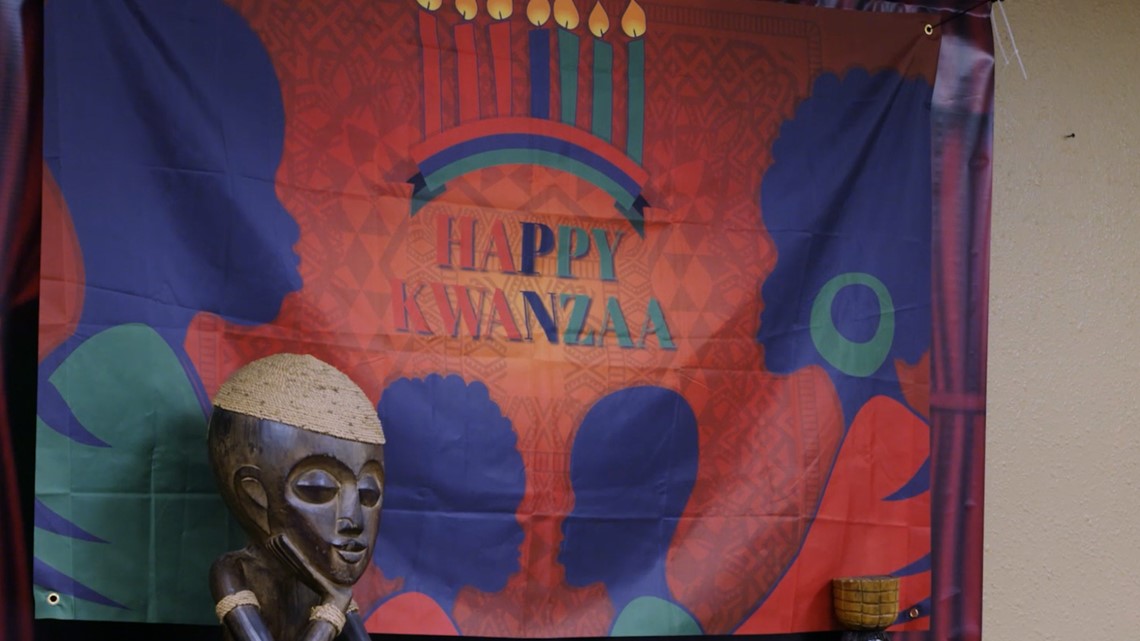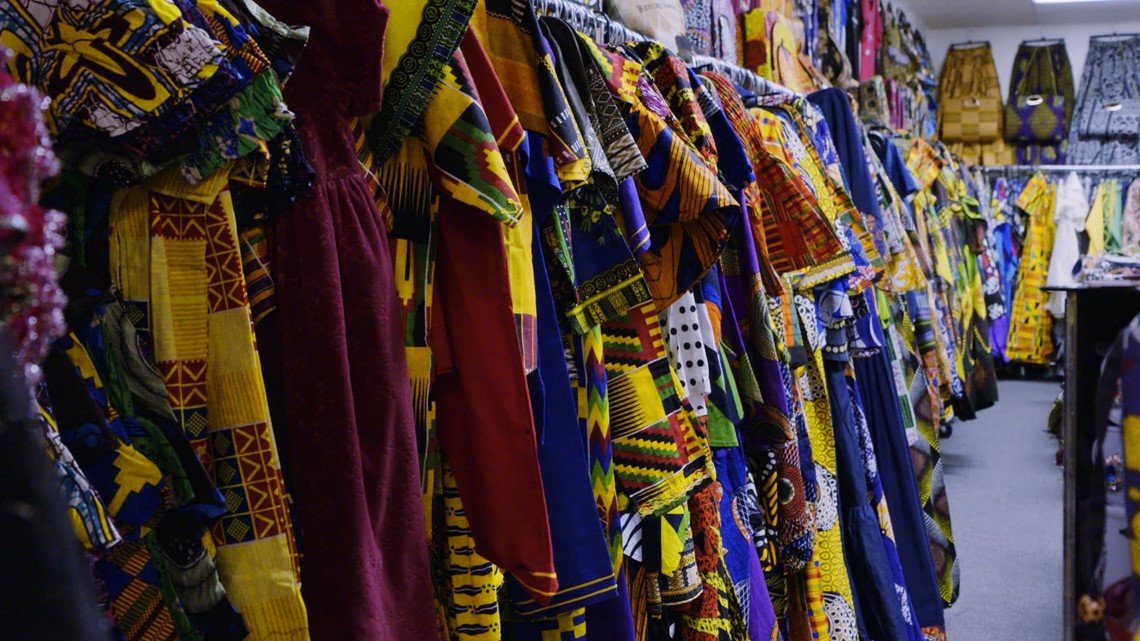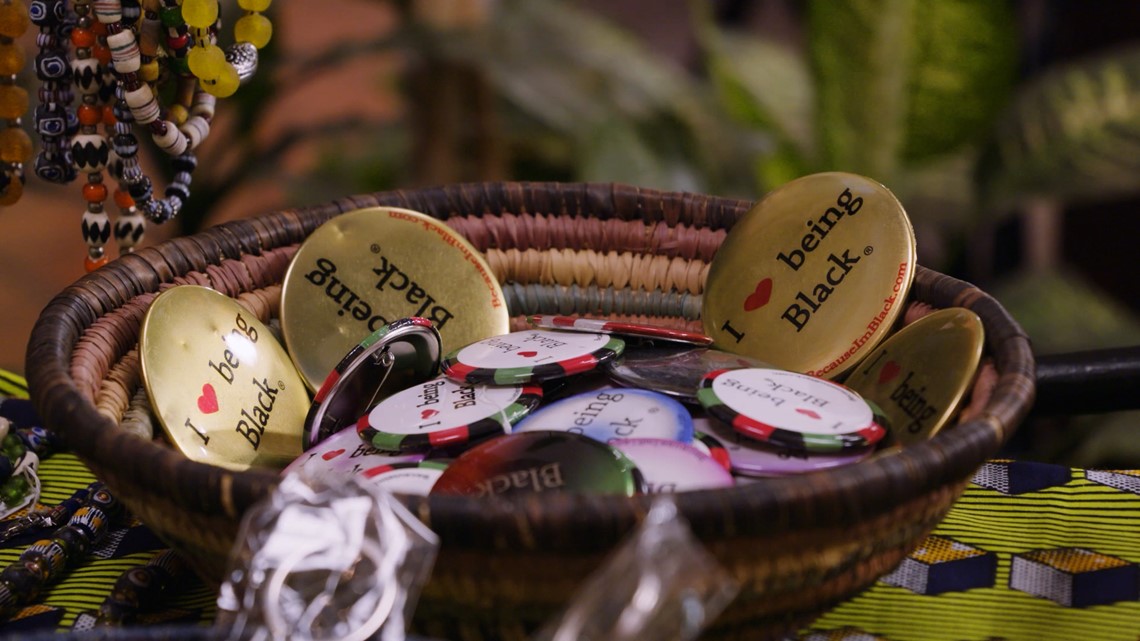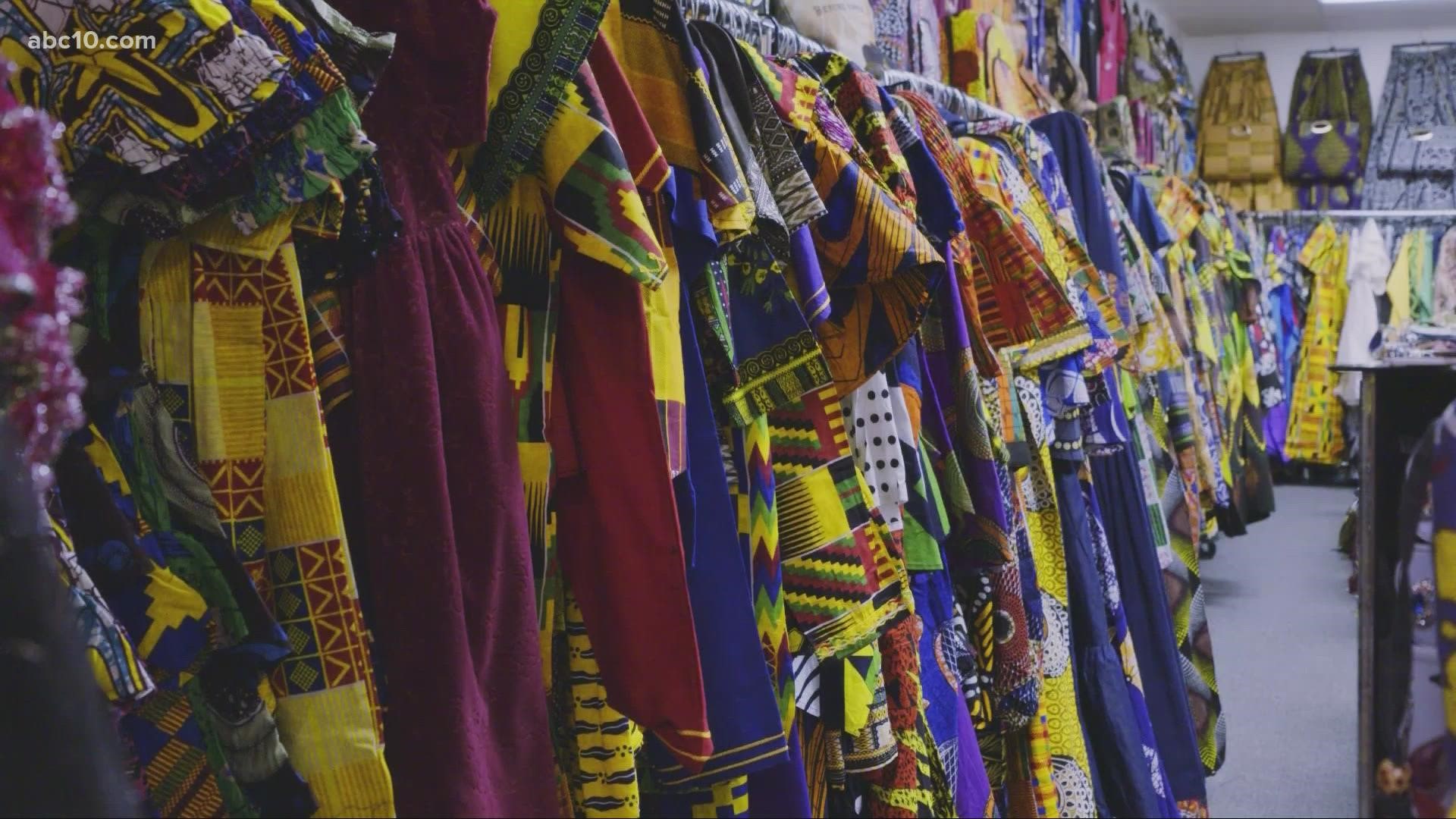SACRAMENTO, Calif — The Sojourner Truth African Heritage Museum is celebrating Kwanzaa in Sacramento.
Kwanzaa is an African American and Pan-African holiday that celebrates history, values, family, community and culture. It begins Dec. 26, right after Christmas, and ends Jan. 1.
During the holiday, families and communities celebrate and organize activities around the seven guiding principles. That includes: Umoja (Unity), Kujichagulia (Self-Determination), Ujima (Collective Work and Responsibility), Ujamaa (Cooperative Economics), Nia (Purpose), Kuumba (Creativity), and Imani (Faith).
The Sojourner Truth African Heritage Museum presented a Ujamaa Market Day on Wednesday at Florin Square Plaza, specifically, to recognize the fourth principle. Cooperative economics encourages Black people to build and maintain their own stores, shops, and other businesses to gain profit together.
Several Black business owners participated in Ujamaa Market Day in hopes of raising awareness about Kwanzaa and the importance of supporting Black small businesses, organizations and brands.


Samantha Wall Laidler is the founder and owner of Unlimited Fashions, a fashion company based in Sacramento. During Ujamaa Market Day, Laidler acted as a proud community vendor. She offered shoppers African clothing, hats, purses, accessories, and other fine products.
“Supporting Black-owned businesses is important,” said Laidler. “It helps to empower Black-owned businesses. When you support a Black business, you help create jobs in our community. Black-owned businesses also set examples for our children. It teaches business, communication, and economic development skills.”
In celebration of Kwanzaa, Ujamaa Market Day also featured African-American storytelling for children, dancing, health cooking demonstrations, arts and crafts, a free Kwanzaa photo booth, food, drinks, live music, and other fun activities and games.


“For me, Kwanzaa means unity, economic empowerment, to work together, and help people to build our community so that we can become independent, strong, and self-sufficient,” Laidler said.
Dr. Maulana Ron Karenga, a professor of Africana Studies at California State University, Long Beach, created Kwanzaa in 1966 following the Watts Riots in Los Angeles to bring people together.
The ideas and concepts of Kwanzaa are expressed in the Swahili language, one of the most widely spoken languages in Africa, according to the National Museum of African American History and Culture. Kwanzaa gets its name from the Swahili phrase, "matunda ya kwanza."


It's rooted in first fruit celebrations, which are found in cultures throughout Africa both in ancient and modern times. The seven principles, which form its core, were drawn from communitarian values found throughout the African continent.
Remember, Kwanzaa is not a religious holiday or an alternative to Christmas, and anyone can celebrate it, respectfully. To learn more about Kwanzaa, visit the official website.
WATCH MORE:
WATCH ALSO:

